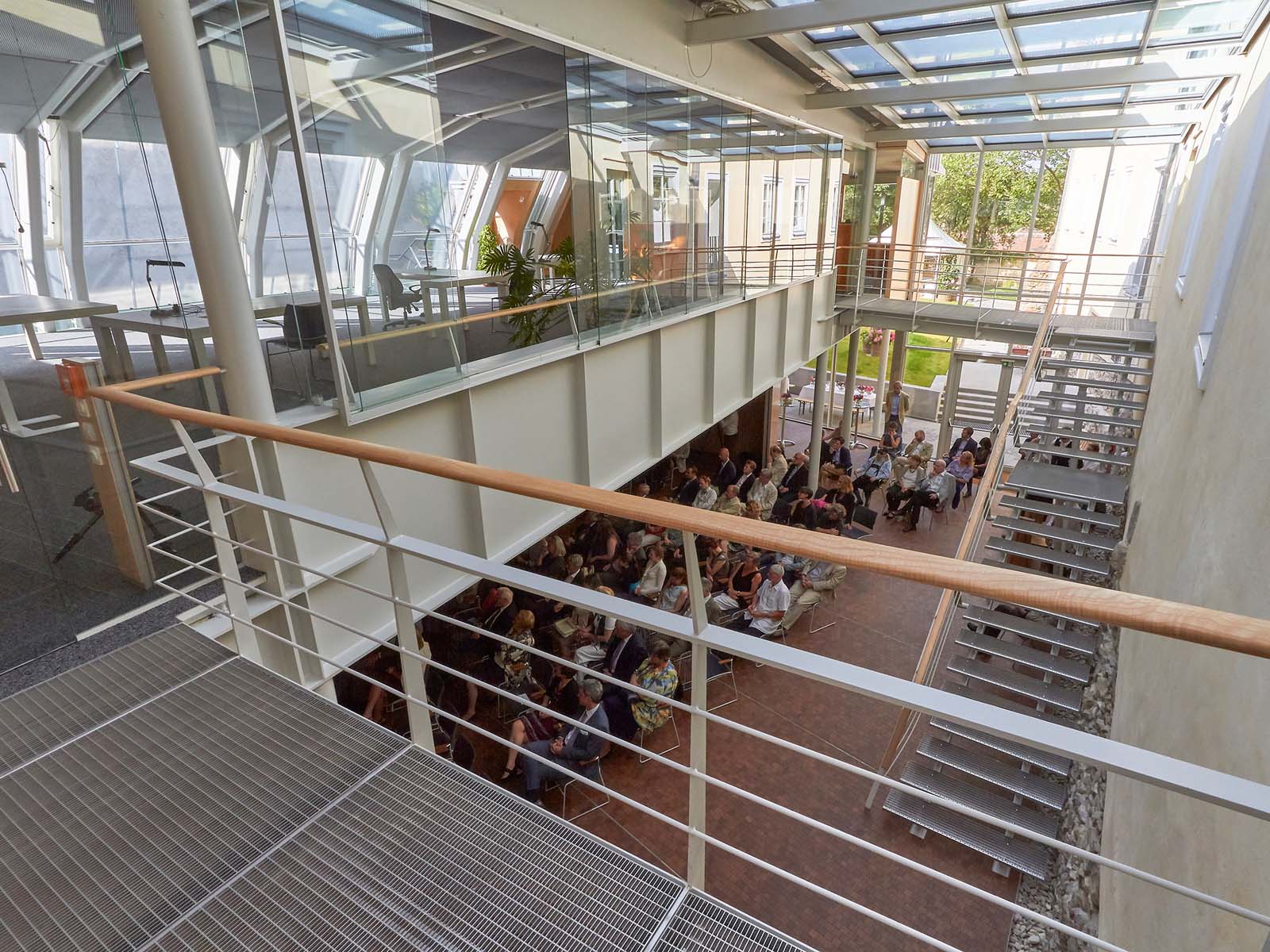The year 2025 marks the centenary of Rupert Riedl, the founding president of the Konrad Lorenz Institute for Evolution and Cognition Research (KLI), which itself was established 35 years ago in 1990. Since its inception, the KLI has played a pivotal role in supporting research in theoretical biology. To commemorate this milestone, the KLI hosted a day-long symposium on 16 June 2025, under the theme "What is Theoretical Biology?"
The event commenced with a welcome address by KLI President Philipp Mitteroecker, followed by a keynote lecture from Honorary President Gerd Müller, titled, "Rupert Riedl and the Austrian School of Theoretical Biology." Prof. Müller’s talk provided historical context for the academic environment in which Riedl developed his interest in theoretical biology and introduced key concepts of his theoretical approach to evolution. The symposium featured several distinguished speakers who explored different dimensions of theoretical biology. (Click on title to read more.)
The year 2025 marks the centenary of Rupert Riedl, the founding president of the Konrad Lorenz Institute for Evolution and Cognition Research (KLI), which itself was established 35 years ago in 1990. Since its inception, the KLI has played a pivotal role in supporting research in theoretical biology. To commemorate this milestone, the KLI hosted a day-long symposium on 16 June 2025, under the theme "What is Theoretical Biology?"
The event commenced with a welcome address by KLI President Philipp Mitteroecker, followed by a keynote lecture from Honorary President Gerd Müller, titled, "Rupert Riedl and the Austrian School of Theoretical Biology." Prof. Müller’s talk provided historical context for the academic environment in which Riedl developed his interest in theoretical biology and introduced key concepts of his theoretical approach to evolution. The symposium featured several distinguished speakers who explored different dimensions of theoretical biology. (Click on title to read more.)
KLI Senior Postdoc Fellow Enrico Petracca, along with James Grayot (University of Porto, Portugal), has contributed a chapter titled, “Mindshaping and the embodiment of rationality” in the recently published volume, The Routledge Handbook of Mindshaping. Mindshaping is described as ‘the complex, diverse, and flexible capacities to shape each other's minds though practices such as ‘sophisticated imitation, pedagogy, conformity to norms, and narrative self-constitution.’ The chapter connects mindshaping with the relatively new research on the embodiment of rationality, the view according to which rational behavior is not only an outcome of brain but of the interaction between brain, body, and environment. (Click on title to read more.)
KLI Senior Postdoc Fellow Enrico Petracca, along with James Grayot (University of Porto, Portugal), has contributed a chapter titled, “Mindshaping and the embodiment of rationality” in the recently published volume, The Routledge Handbook of Mindshaping. Mindshaping is described as ‘the complex, diverse, and flexible capacities to shape each other's minds though practices such as ‘sophisticated imitation, pedagogy, conformity to norms, and narrative self-constitution.’ The chapter connects mindshaping with the relatively new research on the embodiment of rationality, the view according to which rational behavior is not only an outcome of brain but of the interaction between brain, body, and environment. (Click on title to read more.)
KLI Senior Postdoc Fellow Enrico Petracca’s article, ‘Evolution at a Tipping Point’ in the journal Biological Theory, is a review of the book Evolution Evolving (Princeton University Press). The review points out how the book dispels common criticisms levelled at EES, which has over the years variously been accused of dealing with phenomena that are biologically impossible, rare, or of insufficient magnitude. The review also emphasizes how EES sets an inherently interdisciplinary research agenda in evolutionary theory by fostering a programmatic alliance with disciplines considered far from the evolutionary discourse, such as the social sciences and humanities. In Enrico’s words – “the reader (of the book) will feel the rare and invigorating sense of being on the verge of something momentous: the tipping point, at which EES becomes necessary.” (Click on title to read more.)
KLI Senior Postdoc Fellow Enrico Petracca’s article, ‘Evolution at a Tipping Point’ in the journal Biological Theory, is a review of the book Evolution Evolving (Princeton University Press). The review points out how the book dispels common criticisms levelled at EES, which has over the years variously been accused of dealing with phenomena that are biologically impossible, rare, or of insufficient magnitude. The review also emphasizes how EES sets an inherently interdisciplinary research agenda in evolutionary theory by fostering a programmatic alliance with disciplines considered far from the evolutionary discourse, such as the social sciences and humanities. In Enrico’s words – “the reader (of the book) will feel the rare and invigorating sense of being on the verge of something momentous: the tipping point, at which EES becomes necessary.” (Click on title to read more.)


















